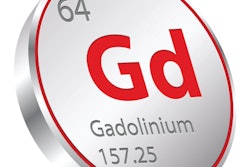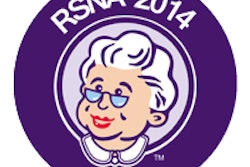Bayer HealthCare announced that the U.S. Food and Drug Administration (FDA) approved its Gadavist (gadobutrol) injection for use with MRI in pediatric patients younger than 2 years old.
Gadavist can be used to detect and visualize areas with disrupted blood-brain barrier and/or abnormal vascularity of the central nervous system, Bayer said.
The FDA based its decision on a clinical study showing that the pharmacokinetic and safety profiles of Gadavist in pediatric patients younger than 2 were similar to pharmacokinetic profiles in older children and adults at standard dose (0.1 mmol/kg).
The study included 47 pediatric patients (term neonates to 23 months) with normal renal function from nine centers across the U.S., Canada, and Europe. All but three pediatric patients were evaluated for safety and efficacy, and 43 were eligible for a pharmacokinetic profile evaluation. Safety was a secondary end point, and the study also included a qualitative assessment of efficacy, Bayer said.
Gadavist's adverse event profile was consistent with what has been seen in older populations, according to the firm. In one patient, vomiting was reported as a mild adverse drug reaction. Otherwise, the most common nonserious adverse events unrelated to Gadavist were cough, nasopharyngitis, rhinitis, pyrexia, and vomiting. The serious adverse events, reported in three out of 44 patients, were unrelated to Gadavist administration, Bayer said.
Gadavist's labeling for the new indication includes a warning regarding the development of nephrogenic systemic fibrosis (NSF), which has been linked to the use of gadolinium-based contrast agents in patients with impaired renal function. The warning, also carried on other gadolinium-based MRI agents, advises clinicians to avoid the use of gadolinium-based agents in patients with impaired renal function unless the diagnostic information is essential and not available with noncontrast MRI or other modalities.



.fFmgij6Hin.png?auto=compress%2Cformat&fit=crop&h=100&q=70&w=100)



.fFmgij6Hin.png?auto=compress%2Cformat&fit=crop&h=167&q=70&w=250)











